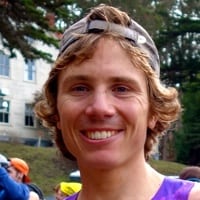Sometimes when I sit down to write, I have trouble finding my words.
In moments like this, I’m reminded to just start writing. The act of doing what we feel we cannot do helps us to find what we can. That’s how I started what you are reading here. I rambled on about a bunch of nonsense that I later deleted. But just because it didn’t make the cut doesn’t mean it wasn’t useful. The act of writing helped me to find my rhythm. Once I had that, I also found my voice. While it can be hard to find this groove, once you’ve got it, it’s pretty unmistakable.
It’s like dancing. There is little sense in forcing it. You have to let it come to you. This isn’t to say that it is void of effort. The best dancers on the floor work hard at what they do, but they also know how and when to focus their efforts.
This is in contrast to the awkward guy trying to dance in the corner who steps at the wrong time, sways too fast or too slow, and is always ahead or behind, but never on time. The arts are one of the only places where it doesn’t pay to show up early or leave late. You have to be right on cue.
I find the same to be true when it comes to training. I’ve spent years developing myself as an endurance athlete. One thing I’ve noticed over this time is that training seems to work best when you don’t force it.
As an athlete, this can seem counterintuitive. We tend to pride ourselves in buckling down, digging in, and making things happen. We want our will to make a way and our success to be a result of our efforts. This isn’t to say that developing as a runner is void of hard work. What I am trying to point out is that the efforts must come at the right time and in the right way.
Success in running is a byproduct of consistent cycles of work and rest. Can it feel tiring, even exhausting at times? Certainly. But sometimes, in the midst of a really good training block, it also just feels like things are clicking. You might hear some runners describe it as their body absorbing the training.
I like this idea, so let’s extend it into a metaphor, where we picture our body as a sponge, and our training as a liquid. Bit by bit, a sponge absorbs a liquid until it’s full. This is when you have to wring it out a bit, and rest in order to make room for more work. This refreshes the body and makes it ready for more.
As you return the sponge to the water, it can once again absorb. Then, when you do hard workouts, you feel the pace and effort come to you a bit more naturally. Sure, you still put forth effort, but you’re training, not straining and pressing, not stressing. In other words, the work feels challenging, but not overwhelming, an important distinction. Each soak of the sponge tests the body just enough while each restful squeeze makes room for a little more. Your movements are smooth and controlled, not awkward and disjointed like the guy tucked away in the corner of the dance floor.
The cycle continues until it’s time for the big dance. At this point, you give the sponge an extra big squeeze. Then, on race day, you don’t hold back. You plunge it deep down in the water and allow it to absorb all that it can. You find the rhythm and dance like nobody’s watching. When it’s all said and done, you do some major squeezing to recover. If unsure, squeeze a little more than you think you should. Eventually the dance music will return.
As we approach the end of the year, this is a good time to think about wringing out your sponge. Maybe your 2021 training had a bit too much soaking and not enough squeezing, or perhaps the ratio was good, but the stress of everyday life was all out of whack.
Regardless of where you stand — or soak — the end of the year is always a good opportunity to reassess. So, as you go into these last days of 2021, take some time to consider where you’ve been and where you hope to go. If appropriate, take some time to reset. And if in doubt, squeeze it out, because you can’t fill what’s already full. It just doesn’t work that way, and you can trust me on that one.
Call for Comments
- How do you soak in the training so that you can squeeze out your best performance on race day?
- Are there other areas of life where you can apply this same principle?


